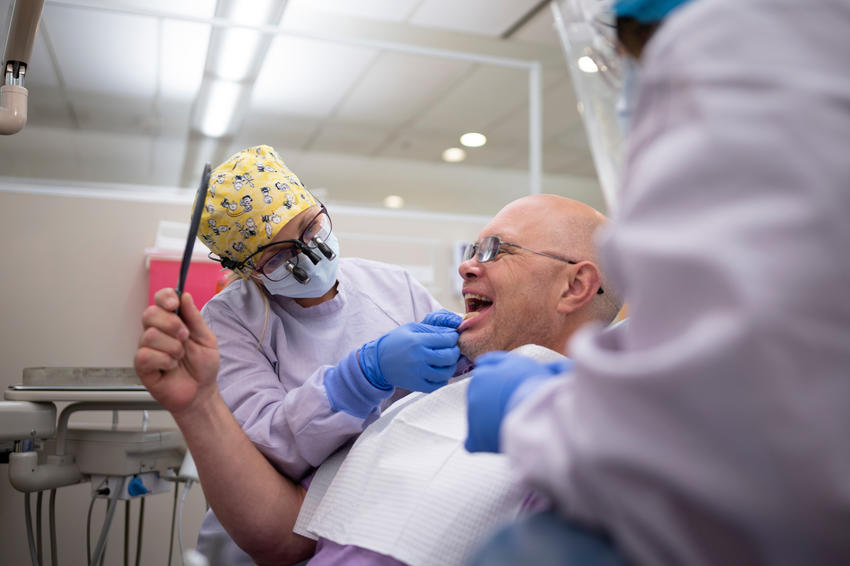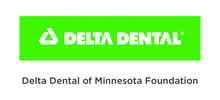Conrad explores quality of life impacts of prosthodontic interventions

A collaboration with the University of Minnesota Medical School and other head and neck surgeons will seek to improve the quality of life of cancer patients who require prosthodontic rehabilitation.
Heather Conrad, DMD, MS, FACP, FRCD(C), associate professor of prosthodontics and interim chair of the Department of Restorative Sciences, partnered with Clinical Associate Professor Jacqueline Medina, DDS, and Director of the Oral Health Clinical Research Center Eric Schiffman, DDS, MS, for ‘The impact of maxillofacial prosthetic rehabilitation on Oral Health-Related Quality of Life and Health-Related Quality of Life patients with oral cancer’.
The research is personal for Conrad. “I have lost several family members to cancer,” she explained. “So I am passionate about helping cancer patients within my scope of practice.”
Conrad is a board certified prosthodontist, specializing in the rehabilitation of defects and disabilities to the mouth and face from birth, disease or trauma. For cancer patients specifically, prostheses come into play when resection, a procedure wherein areas of bone or tissue are removed in an effort to remove cancerous tumors, occurs. That can leave holes and impact everyday functions like swallowing, speech and eating.
“I wanted to find a pathway to help patients with oral cancer, who are often marginalized and have difficulty finding special care,” Conrad explained. She wanted to look beyond what a prosthetic approach could do to simply solve a medical problem, and instead see how it can have an impact on a patient’s life.
Using the Oral Health Impact Profile and the Short-Form Health Survey, Conrad and her teammates hope to evaluate the effect of prosthetic rehabilitation on patient quality of life. “We are hopeful that we will find that the prosthetic rehabilitation of a patient with an intraoral tumor resection will have an improved oral-health related quality of life and improved health-related quality of life,” Conrad said. She hopes to document the toll facial defects after cancer take on a patient, as well as the great benefit the procedure can have on mental and physical health—encouraging more insurance companies to cover the procedure and facilitating greater access to rehabilitation, particularly for patients with a lower socioeconomic status.
The study is moving forward due to a grant to the University of Minnesota Foundation from Delta Dental of Minnesota Foundation, whose mission is to improve oral and overall health outcomes in Minnesota, while advancing health and social equities. Conrad and her collaborators will provide 20 patients with the procedure and measure their primary and secondary outcomes of quality of life improvement. Conrad is grateful for the foundation’s support of her mission.
“I was excited to learn that the grant was awarded and that this journey can begin,” she said. “The funds will be used to support the costs of the prosthetic rehabilitation.”
In addition to the great impact she hopes this study will have on how we see post-cancer prostheses, Conrad is excited that the study is bringing new life to an interprofessional community. “The study is opening a collaboration with the Medical School and other head and neck surgeons in the community that has been dormant for several years,” Conrad explained. “We are looking forward to building this network again!”

